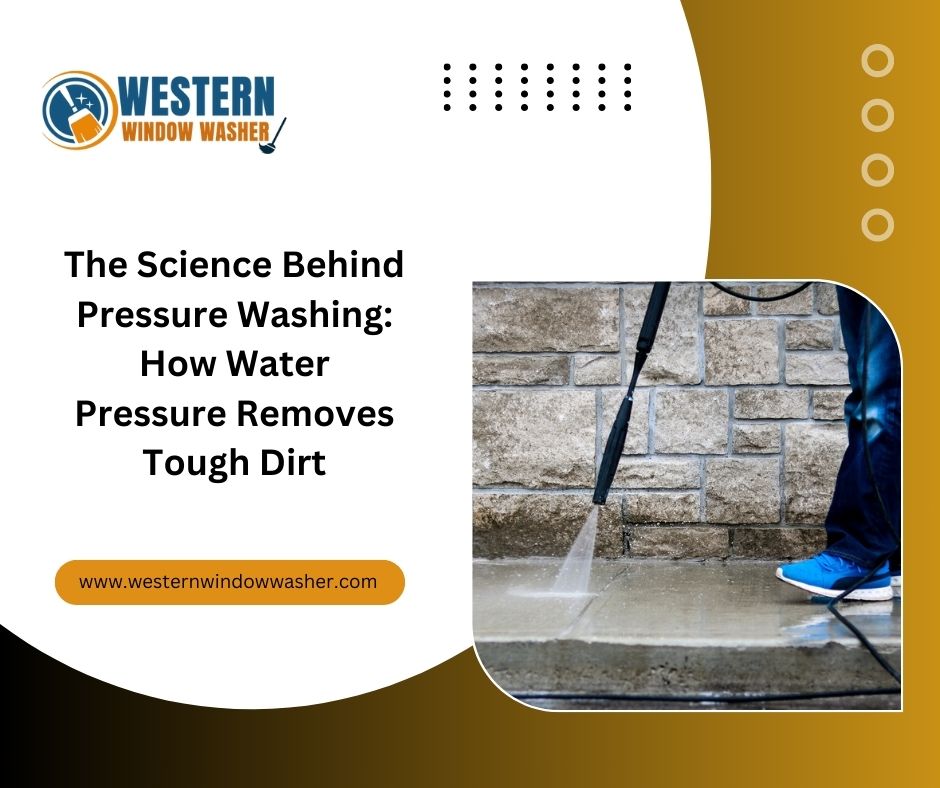The Science Behind Pressure Washing: How Water Pressure Removes Tough Dirt

Ever wondered how a powerful blast of water can strip away years of dirt and grime? The secret lies in the science behind pressure washing. It’s not just about spraying water; it’s about using the right combination of pressure and flow to tackle even the toughest stains.
But how does it work? And why is it so effective, especially in places like Morgan Hill where homes and businesses face varied weather conditions? Let’s break it down.
How Does Water Pressure Remove Dirt?
Imagine you’re scrubbing your driveway by hand. It would take hours to remove those deep-set stains, right? With pressure washing, the force of the water hits the surface so quickly and intensely that it loosens dirt particles in seconds.
The water pressure breaks the bond between the surface and the grime. Dirt particles are either washed away immediately or broken up enough to be rinsed off easily. This works for everything from driveways to patios, siding, and even roofs.
For instance, concrete requires more pressure, usually 2,500 to 3,000 PSI. For something like wood, a gentler touch is needed—around 1,500 PSI—to avoid damage. That’s why hiring professionals for pressure washing in Morgan Hill is essential; they know how to adjust the pressure for different surfaces.
Is More Pressure Always Better?
This is a common misconception. You might think the higher the PSI, the cleaner the surface will get, but that’s not always the case. Too much pressure can damage softer surfaces, causing splintering in wood or even cracking in vinyl siding. That’s where expertise comes in. A professional pressure washer understands how to balance pressure with water flow (measured in GPM – gallons per minute) to get the best results without causing harm.
Why Is Pressure Washing So Popular?
In places like Morgan Hill, pressure washing has become a popular maintenance service because it’s fast, efficient, and eco-friendly. It uses significantly less water than traditional cleaning methods. For example, a garden hose typically uses about 24 gallons of water per minute, while a pressure washer uses only 8 gallons per minute—yet it’s much more effective.
Conclusion
Pressure washing isn’t just about blasting water—it’s about understanding the science behind it. Whether you’re looking to clean your home’s exterior, driveway, or patio, pressure washing in Morgan Hill is the quickest and most efficient way to do it. By combining just the right amount of pressure and water flow, even the toughest dirt doesn’t stand a chance.
- How Often Should You Pressure Wash Different Parts of Your Home?
- The Science Behind Pressure Washing: How Water Pressure Removes Tough Dirt
- Seasonal Pressure Washing: When Is the Best Time to Clean Your Home?
- Why Professional Window Cleaning is Essential Before Selling Your Home
- Seasonal Window Cleaning: Why Spring and Fall Are the Best Times






